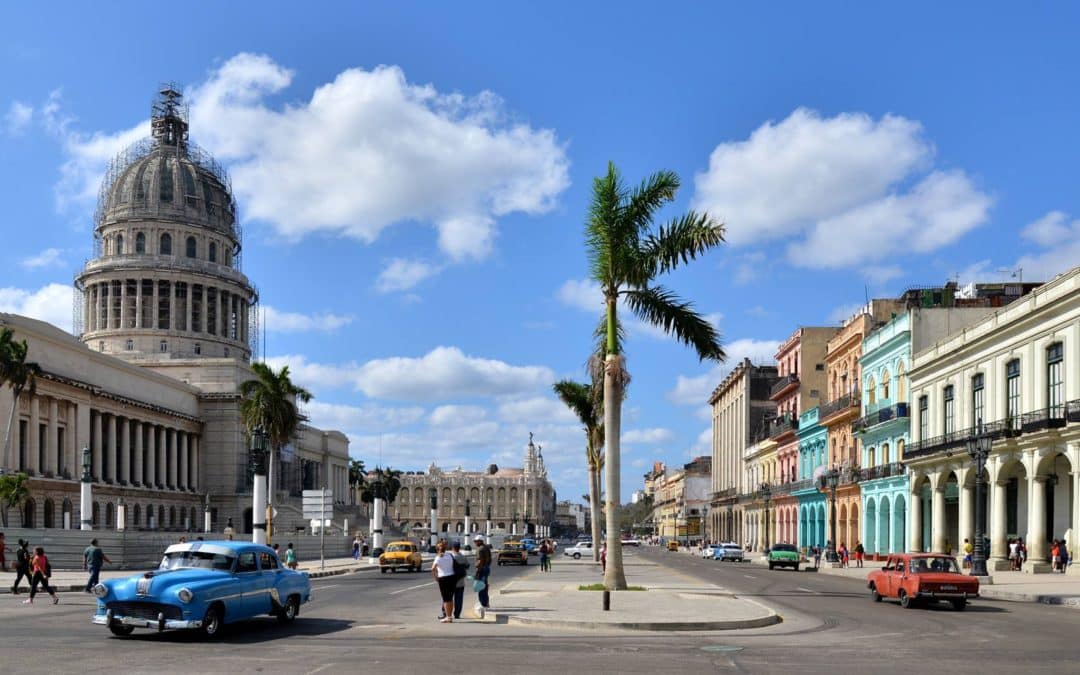It seems like about 15 minutes after the travel embargo to Cuba was lifted in January, I started hearing about people jetting off to this beautiful island. Soon I was seeing photos pop up everywhere in my social media feeds — those iconic streets with old cars, the gorgeous lamp-lit city squares, views of the water, images of colorful and exotic foods, the beautiful arts, dance, and music scenes, the unique architecture ranging from Baroque to Art Deco. It is truly a captivating place!
Acknowledging the existing uneasiness that some still have with this new development, I want to make sure my readers know the facts surrounding the rules themselves. If you think you might want to visit Cuba —what does it mean for you?
First, restrictions are lifted for U.S. citizens and permanent legal residents only, though you can be a non-U.S. citizen and still purchase a ticket if you are physically in the U.S. at the time of purchase.
Second, here’s a distinction you may not know: there are still no tourist visas being administered to Cuba. No U.S. air carrier is presently authorized to provide scheduled service to Cuba. However, that might be changing at some point in the future, and Caribbean Cruise Lines now offers weekly cruises to the island for the first time in over 50 years. “The liberalization of travel…will make it easier for people to visit Cuba, but tourist travel is still prohibited by law,” said American University professor William LeoGrande, an expert on U.S. foreign policy toward Latin America.
So, you can’t just book a flight — unless you fit into one of the 12 designated travel categories set by the Federal Government. These are:
- Family visits
- Official business of the U.S. government, foreign governments, and certain intergovernmental organizations
- Journalistic activity
- Professional research and professional meetings
- Educational activities
- Religious activities
- Public performances, clinics, workshops, athletic and other competitions, and exhibitions
- Support for the Cuban people
- Humanitarian projects
- Activities of private foundations or research or educational institutes
- Exportation, importation, or transmission of information or information materials
- Certain export transactions that may be considered for authorization under existing regulations and guidelines.
These designations are quite wide-ranging, and certainly there would be rich opportunities to see many of the wonderful things Cuba has to offer visitors under any one of these categories.
In the end, if Cuba is on your bucket list, now is a great time to explore the possibility of visiting. When you work with me, I can help you navigate any paperwork needed to self-certify that your trip falls under one of these 12 categories. I can work with airlines and cruise lines. Rest assured that we experts in the travel industry are paying close attention to new trends and developments, and we are working closely with travel representatives in Cuba to ensure the best possible travel experiences.
If you’d like more info, have questions, or are interested in planning a trip to Cuba, I’d love to hear from you! You can get in touch with me today by clicking here.

